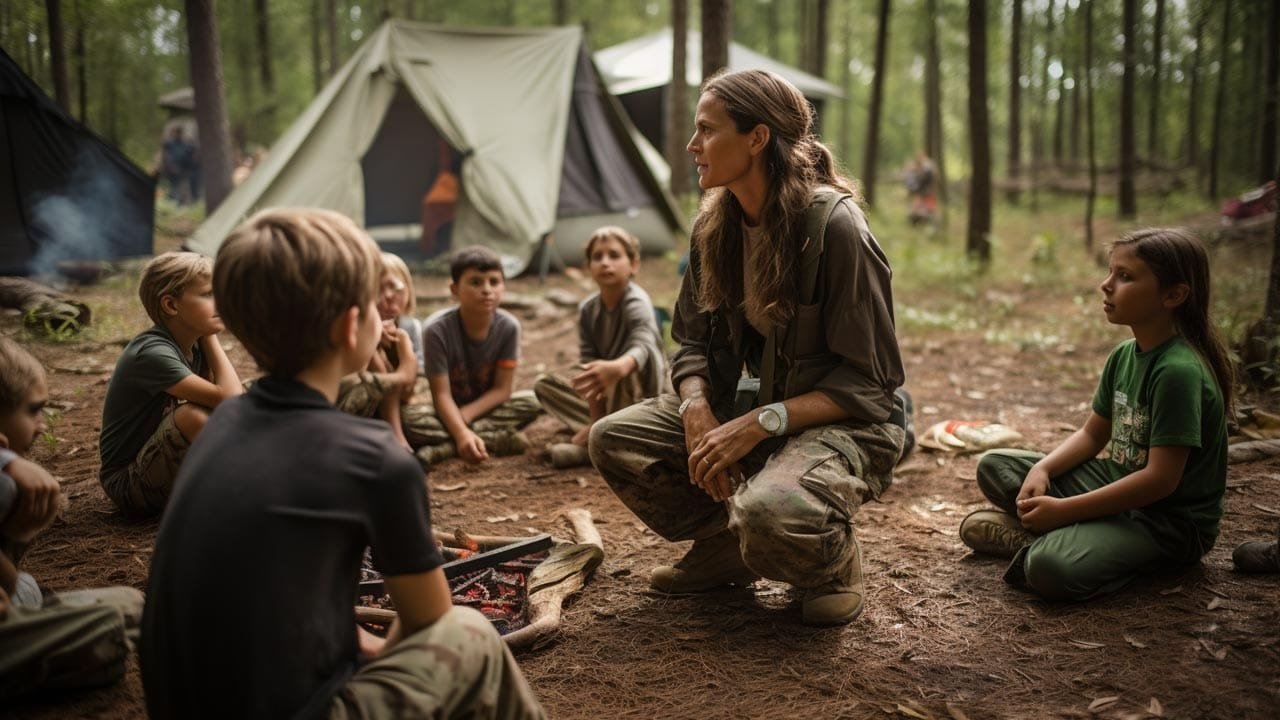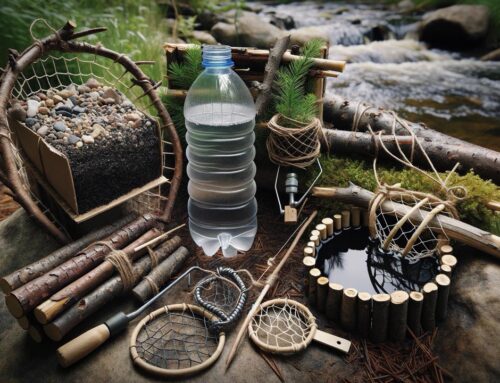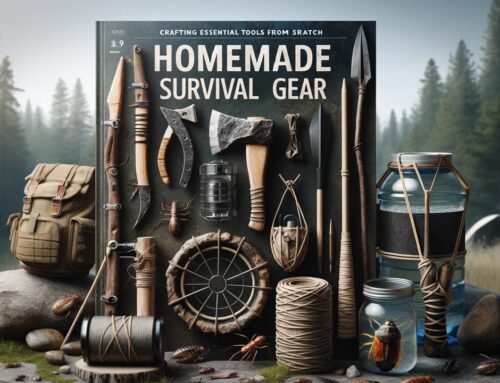Survival Training for Families: Teaching Kids Self-Reliance Skills
In today’s fast-paced world, instilling the principles of self-reliance and survival skills in our children is more important than ever. Survival training for families not only prepares kids for unexpected situations but also fosters independence, confidence, and problem-solving abilities. This guide delves into the art of teaching kids practical skills that could one day be life-saving.

Understanding Self-Reliance for Kids
Self-reliance in children is about nurturing their ability to care for themselves and make decisions independently. It’s a blend of critical thinking, problem-solving, and responsibility. Such skills are crucial for personal development, bolstering confidence and adaptability. By learning these skills early, children can navigate life’s challenges with ease, benefiting their education, social interactions, and future careers.

Incorporating Survival Training for Families into Everyday Learning
Gardening
Gardening is a hands-on way to teach children about nature and self-reliance. It’s an opportunity for them to learn about seeding, growing fruits and vegetables, composting, and even creating natural pesticides. These activities not only serve science objectives but also improve their reading, following instructions, and math skills. Engaging in gardening helps kids understand the importance of nurturing and patience, key components of emergency preparedness and outdoor skills.
Barnyard Activities
The barnyard is a treasure trove of learning opportunities. From caring for animals to understanding the basics of husbandry, children can engage in various activities that blend science with language arts, math, and social studies. These lessons are invaluable in teaching children about resourcefulness and resilience, preparing them for any survival situation they might encounter.

Organized Survival Training programs for Families
Organized programs like Scouts and 4-H play a significant role in teaching children survival skills. These clubs offer structured environments where kids can learn everything from camping and first aid to gardening and wildlife tracking. They provide a platform for children to develop leadership skills, self-reliance, and a sense of responsibility. By participating in these programs, children can earn recognition for their achievements, further motivating them to develop their survival skills.
Practical Survival Skills and Activities
Adventure Skills for Kids
- Build Your Own Survival Kit: It’s essential to teach children to prepare for emergencies. Assembling a basic survival kit with items like a compass, fire-starting tools, an emergency blanket, and a multi-tool instills a sense of preparedness and responsibility. This exercise helps kids understand the importance of being ready for any situation, a cornerstone of survival training.
- Treasure Hunt (Compass and Map Reading): Using a compass and map to find a treasure is an engaging way for kids to learn navigation. This activity not only makes learning fun but also hones their orienting and triangulation skills, critical for wilderness survival.
- Campfire and S’mores (Fire Building): Building and maintaining a fire is a vital survival skill. Teaching children how to safely start a fire, choose an appropriate location, and use different fire-starting methods equips them with knowledge that is both practical and potentially life-saving.

Camping as a Survival Skill Playground
Camping offers an ideal setting for teaching a wide array of survival skills. It’s a hands-on approach that instills self-reliance and resilience in young adventurers.
- Constructing Shelters: Whether setting up a tent or using natural materials to build a shelter, camping teaches children the importance of having a safe haven in the wilderness. This skill is fundamental to survival training and helps kids understand the basics of shelter building.
- Starting Fires: Camping provides the perfect opportunity to learn fire-building techniques safely. Kids learn to gather tinder, kindling, and understand different methods of starting fires, a crucial aspect of wilderness survival.
- Cooking Over Open Flames: Preparing meals over a campfire teaches children to manage heat, practice fire safety, and adapt to various cooking conditions. This experience is invaluable in developing self-sufficiency and practical cooking skills.
- Tying Knots: Knot-tying is a versatile skill with applications in shelter construction, securing gear, and even in first aid. Camping allows children to practice different knots, understanding their uses and importance in various situations.
- Tracking and Identifying Wildlife: Understanding animal tracks and behaviors is essential for wilderness survival. Camping trips provide a great opportunity for kids to learn about wildlife, enhancing their situational awareness and ecological understanding.

Benefits of Camping for Survival Preparedness
- Familiarity with the Outdoors: Regular camping trips help children become comfortable with various outdoor environments. This familiarity is beneficial in survival scenarios where adaptability and comfort with the natural world are crucial.
- Adaptation to Outdoor Environments: Exposure to different outdoor settings through camping helps children learn to adapt to changing weather conditions and understand the rhythms of the wilderness. This adaptability is key in survival situations.
- Self-Reliance and Problem-Solving: Camping encourages kids to think critically and find creative solutions to practical challenges. These problem-solving abilities are directly transferable to survival situations, where quick thinking is essential.
- Nature Connection and Situational Awareness: Through camping, children develop a deep connection with nature. This connection fosters heightened awareness, sharpened senses, and an understanding of ecological systems, crucial in recognizing potential dangers and navigating effectively in the wild.
Frequently Asked Questions
Conclusion
In an era where technology often overshadows basic survival skills, teaching our children how to be self-reliant is not just beneficial; it’s necessary. From gardening and animal husbandry to structured programs like Scouts and 4-H, there are myriad ways to instill these vital skills. The hands-on experiences gained through activities like camping, fire-building, and navigation are invaluable, equipping our young ones with the confidence and knowledge to handle various life situations. As families, our goal should be to prepare our children not just for the challenges of the wilderness but for the unpredictable journey of life itself. With these skills in their arsenal, they’ll be ready to face whatever comes their way with resilience and resourcefulness.







Leave A Comment